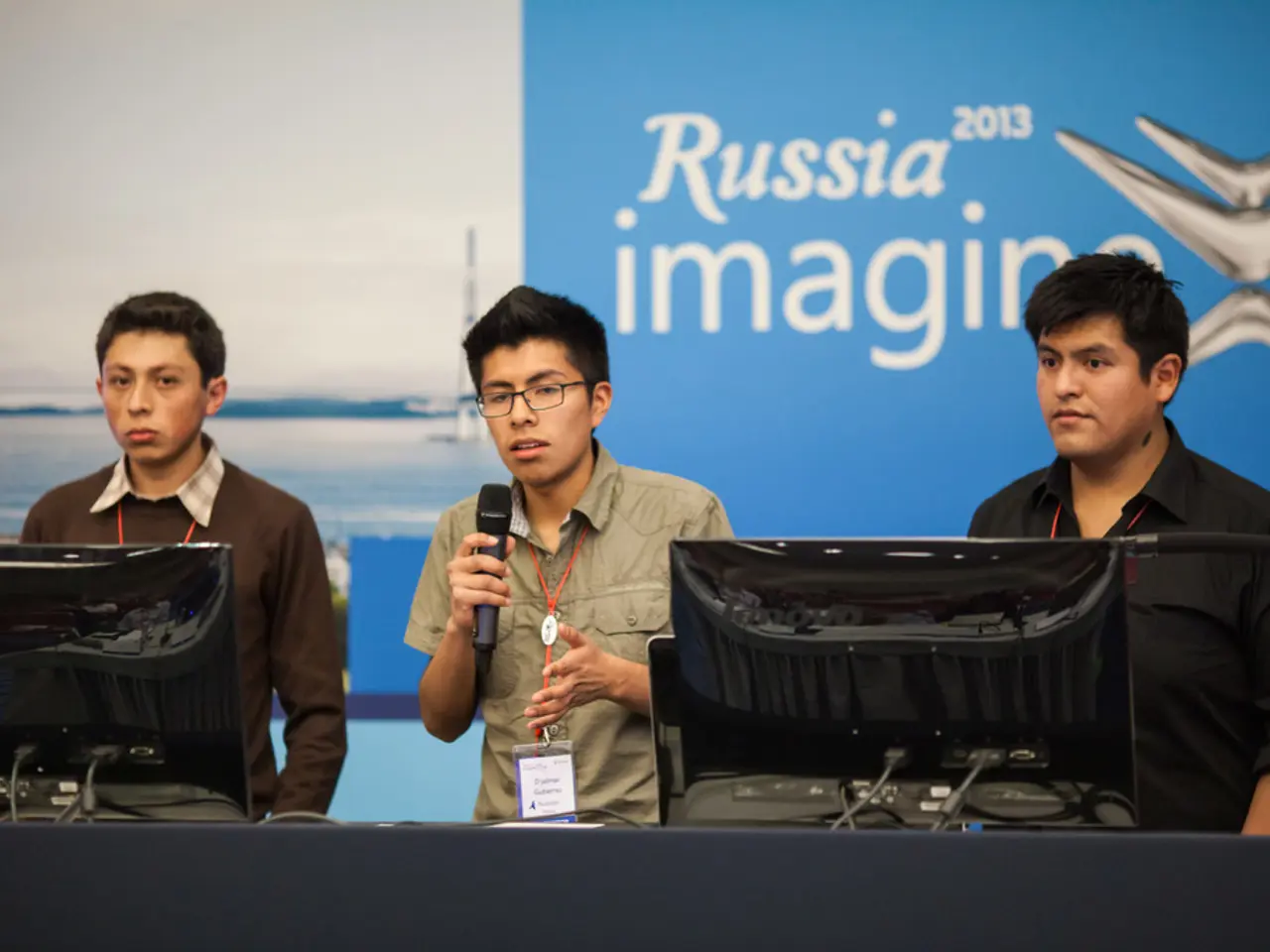Moscow's Foreign Minister, Lavrov, proposes that Russia and China should be included in security assurances for Kyiv.
In the ongoing conflict between Russia and Ukraine, the search for a resolution continues, with various nations and international bodies involved in negotiations and discussions.
One of the key players in these negotiations is Russia, whose President, Vladimir Putin, has shown support for a ceasefire proposal in March 2025, but questioned its effectiveness and proposed conditions for discussion. As of August 2025, no ceasefire has been agreed upon.
In 2021, Russia made demands that NATO troops withdraw from Bulgaria and Romania, and that Ukraine's membership be permanently banned. These demands have not been met, and tensions remain high.
In May, Putin proposed direct negotiations with Kyiv in Istanbul, but ultimately sent a historian in his place, resulting in only prisoner exchanges. The negotiations, however, have not ceased, with Russia's Foreign Minister, Sergey Lavrov, calling for Moscow's involvement in the security guarantees for Kyiv.
Lavrov's remarks highlighted Moscow's role in shaping the security guarantees rather than directly providing them. This role has been echoed by China, with its foreign minister, Wang Yi, expected to be involved in the negotiations. Qin Gang, the former foreign minister, was removed from office in July 2023, and Wang Yi resumed the position thereafter.
Beijing has provided materiel support for Moscow's invasion but has stopped short of directly endorsing it. In a recent conversation with the EU, China's foreign minister reportedly stated that China cannot abide a Russian defeat in Ukraine.
The purpose of the security guarantees is to prevent a future Russian invasion of Ukraine. The US President, Donald Trump, has agreed to provide security guarantees for post-war Ukraine, which will include air support without troop deployments. Ten nations, including France and the UK, have expressed openness to deploying troops to Ukraine as part of the post-war security guarantees.
However, Russia has made it clear that it will not agree to collective security guarantees for resolving the Ukrainian crisis being adopted without Russia's participation. Lavrov has also called for Beijing's involvement "on an equal basis."
The neutral status of Ukraine, including demilitarization, was one of Moscow's initial war goals during the 2022 invasion. Despite the Trump administration's efforts, no ceasefire was achieved, and Moscow repeatedly persuaded the US to halt arms deliveries to Kyiv and postpone planned sanctions against Russia.
The ongoing negotiations and the involvement of various nations demonstrate the international community's commitment to finding a peaceful resolution to the conflict in Ukraine. The future of Ukraine's security remains uncertain, but the discussions and agreements reached so far offer a glimmer of hope for a peaceful and stable future.
Read also:
- United States tariffs pose a threat to India, necessitating the recruitment of adept negotiators or strategists, similar to those who had influenced Trump's decisions.
- Weekly happenings in the German Federal Parliament (Bundestag)
- Southwest region's most popular posts, accompanied by an inquiry:
- Discussion between Putin and Trump in Alaska could potentially overshadow Ukraine's concerns








